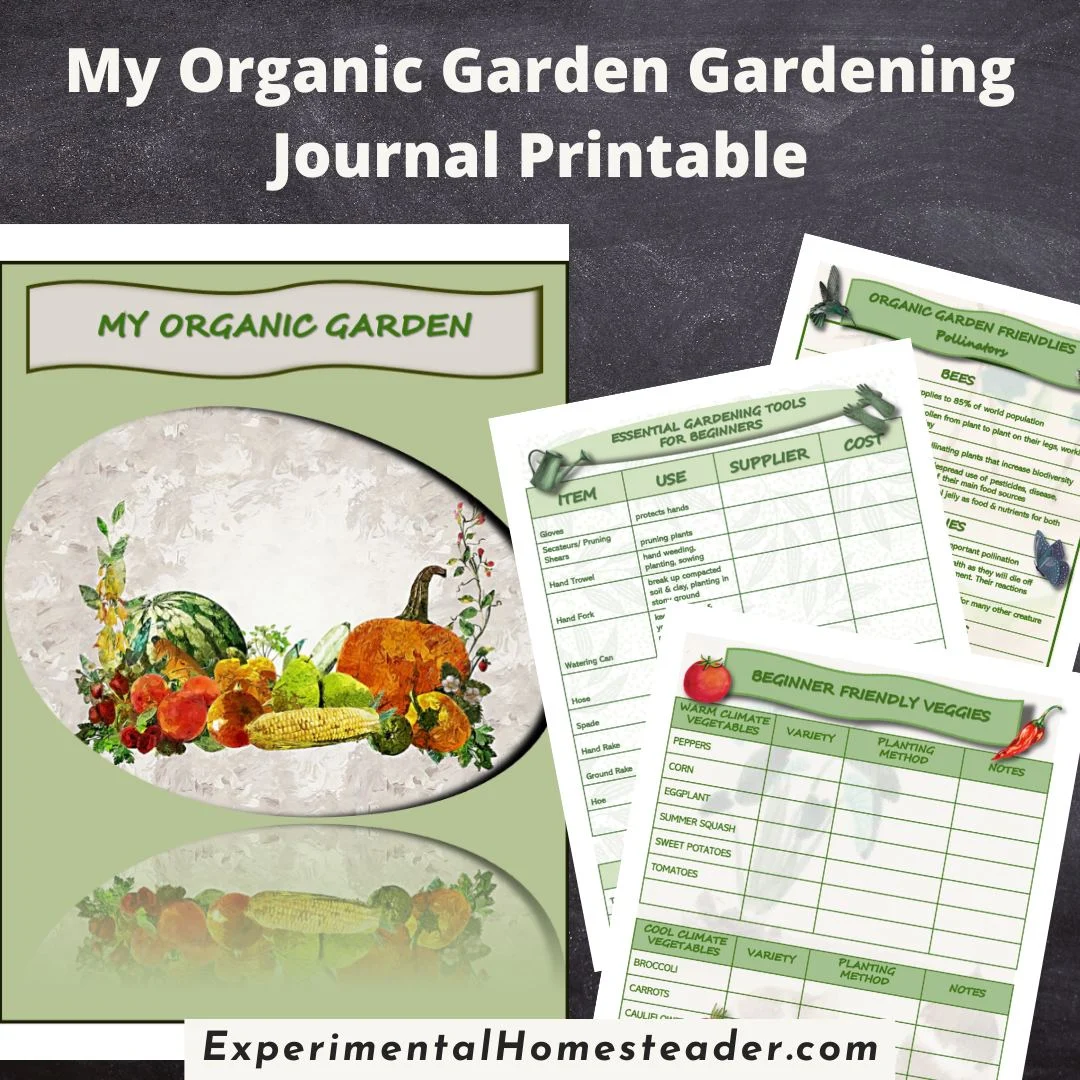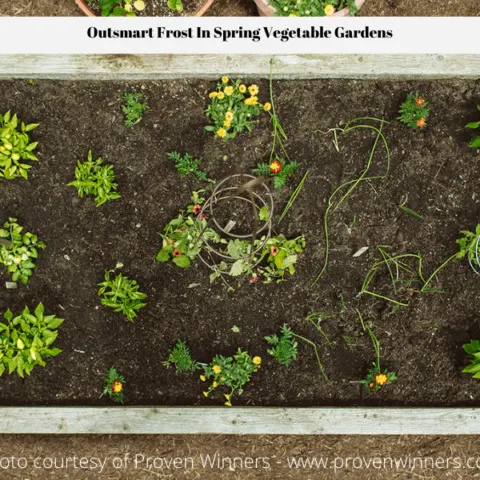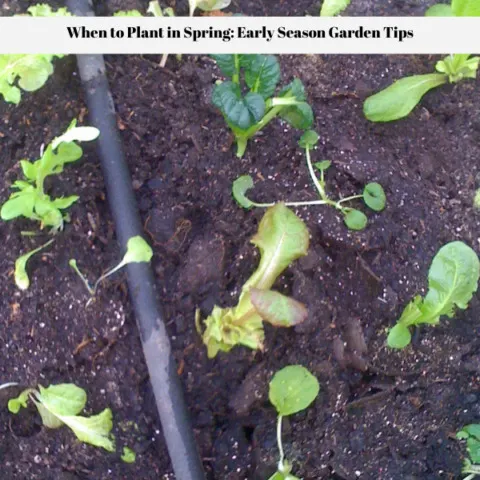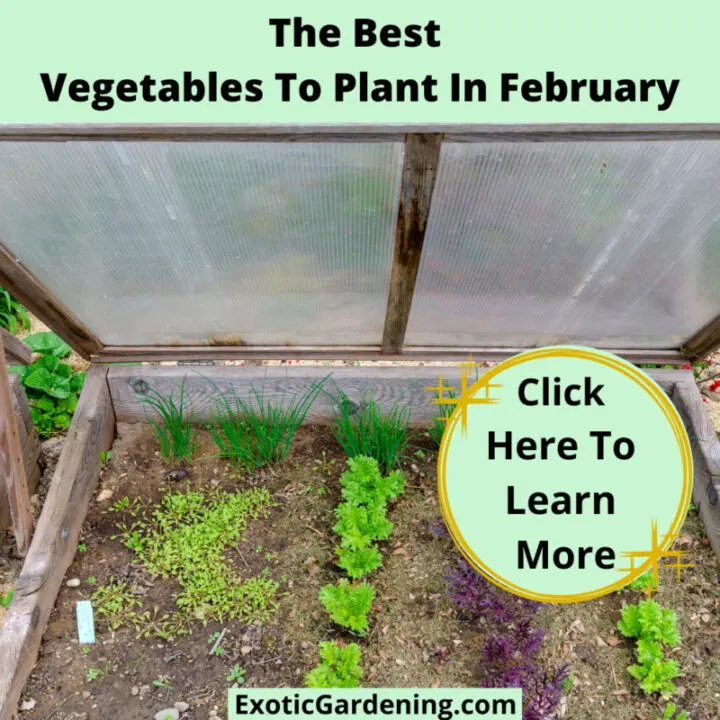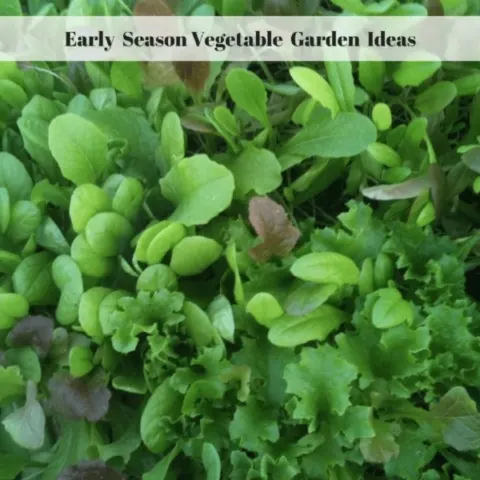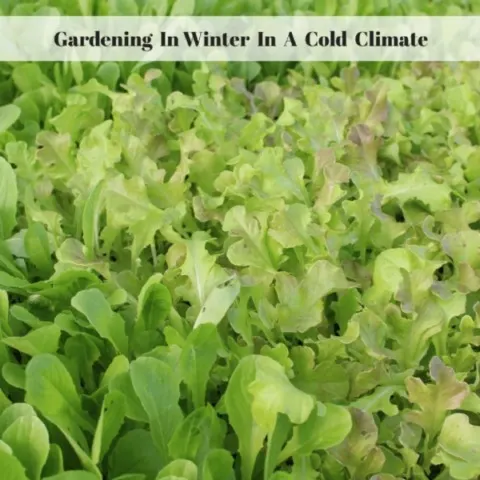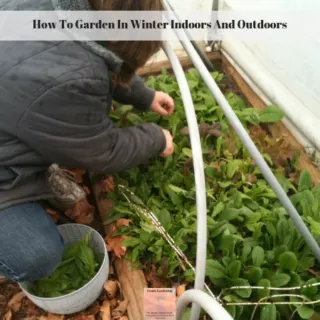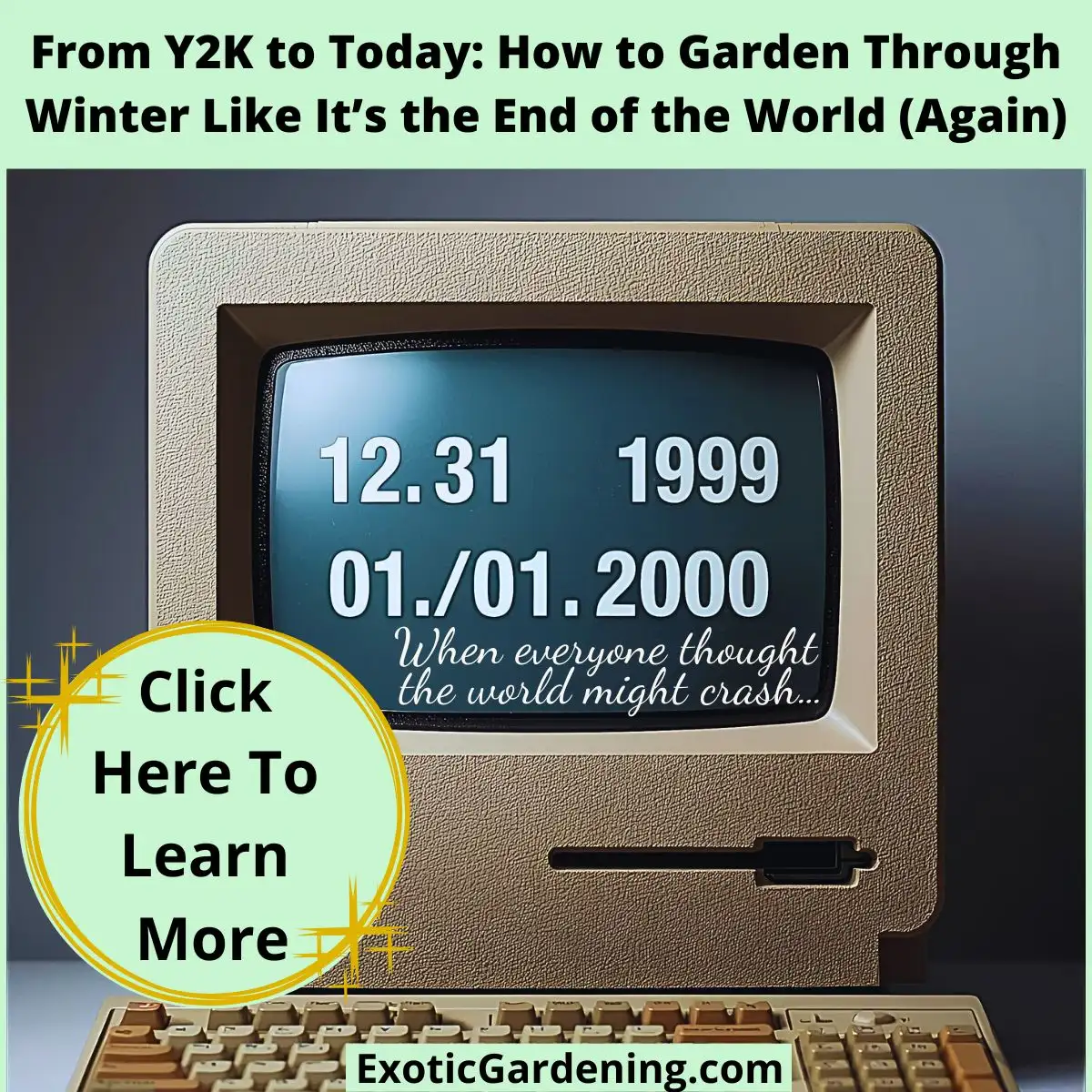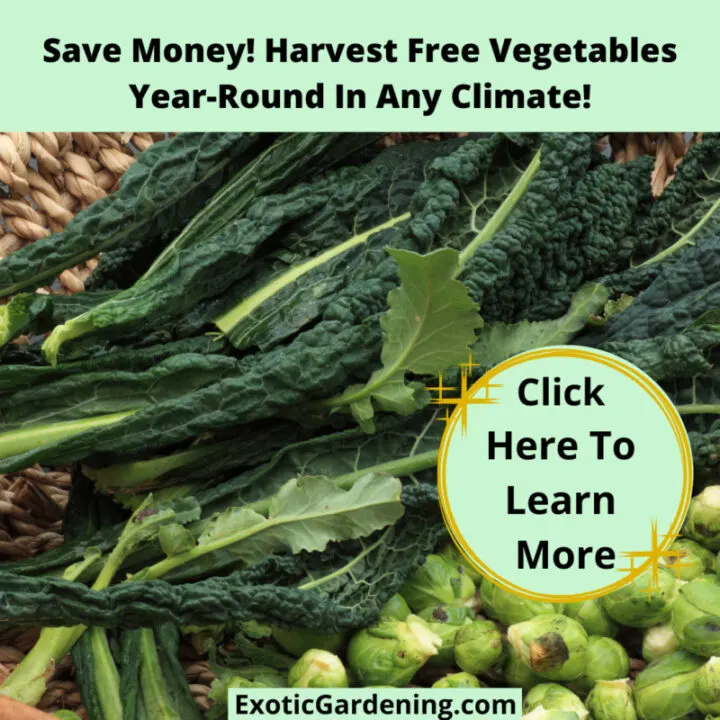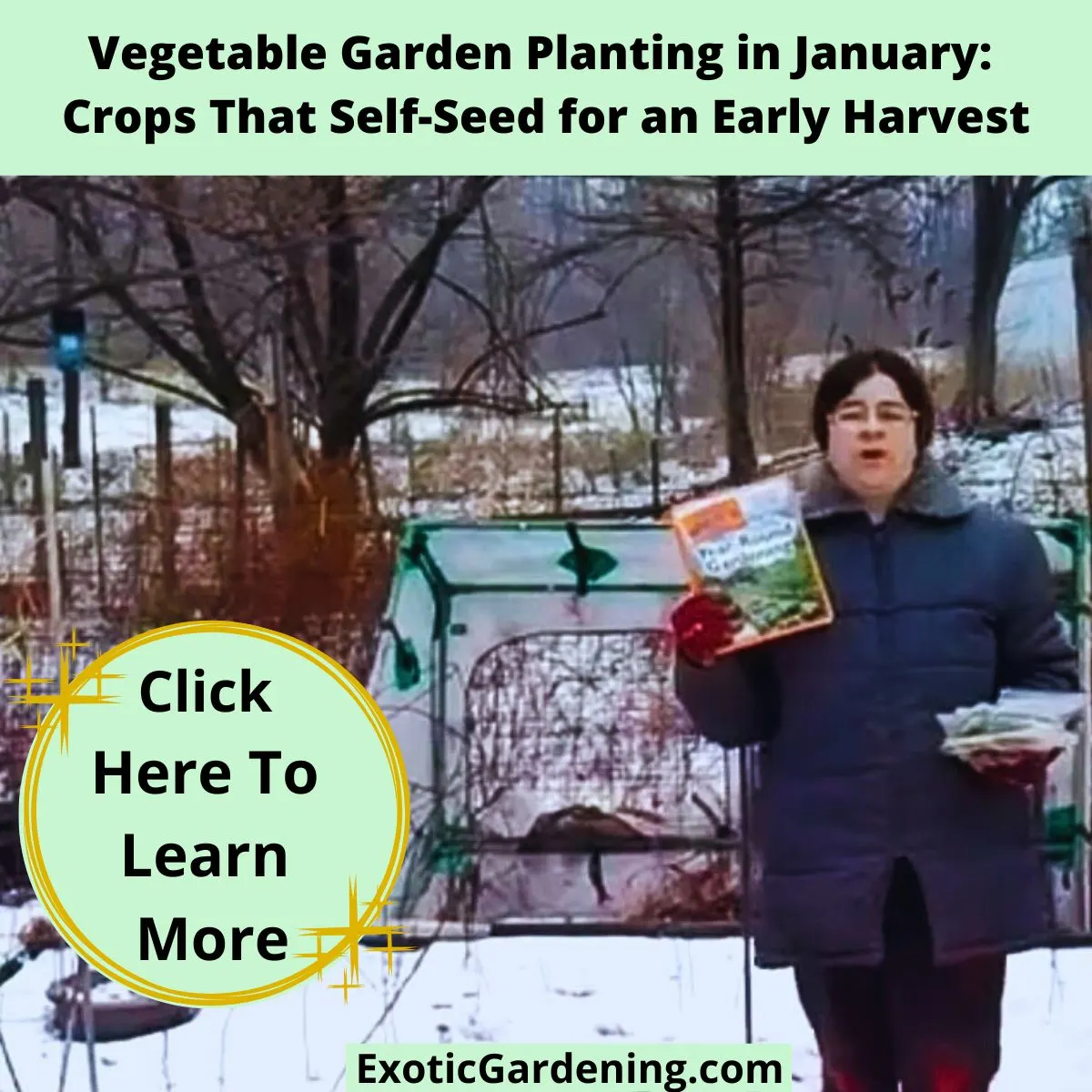There are a number of vegetables to plant in January and by planting early you get a head start on growing early spring vegetables.
Planting cool weather crops in January means you will need cold frames and row covers if you live in a cold climate unless you plan to start seeds indoors.
Here in Indiana seed starting is already underway for many gardeners who want to get a jump start on the spring gardening season.
Some gardeners want to grow vegetables only while other gardeners want a home garden filled with flowers, herbs and home grown vegetables.
What seeds to start in January will depend on many things including how much space you have to grow seeds into young plants, if you have cold frames or tunnel houses to move the seedlings into as they grow and finally how far off spring is in your neck of the woods.
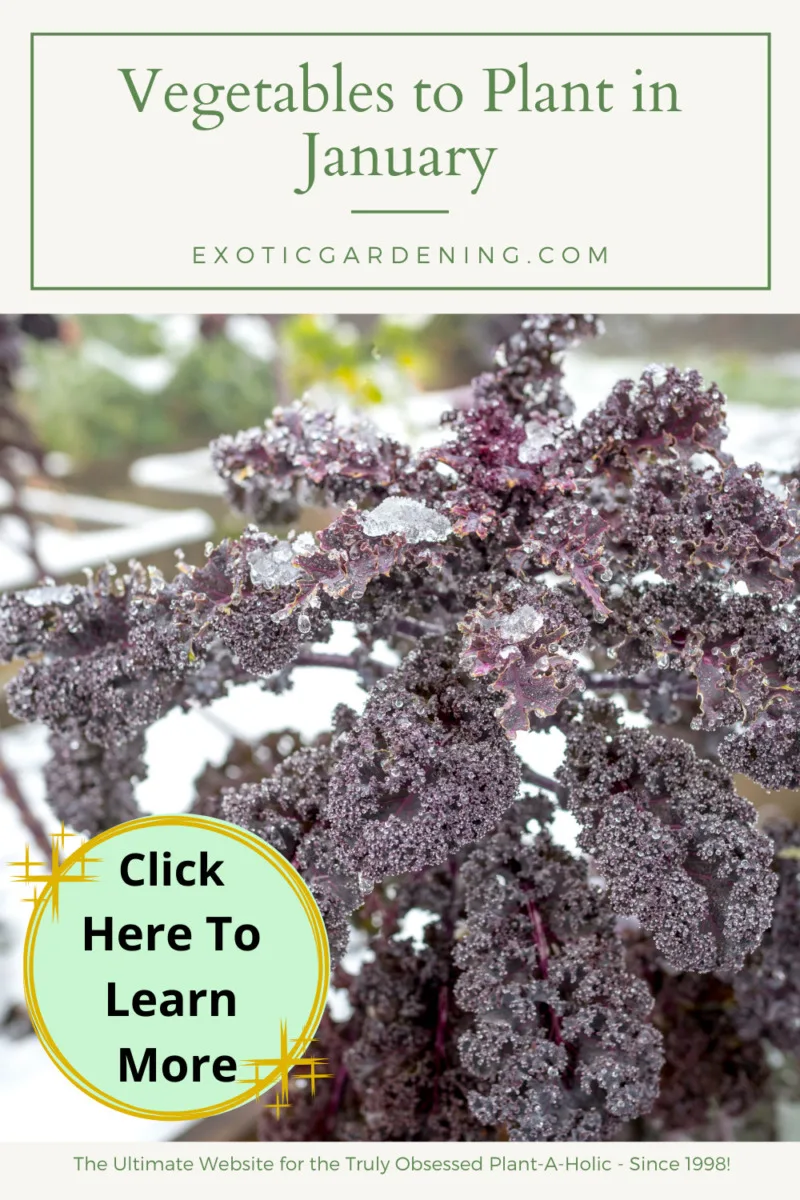
Early Spring Vegetables, Herbs And Flowers
There are many varieties of vegetables, herbs and flowers that can be planted outdoors in the home garden before the last spring frost.
Some of these plants will go right through light frosts without needing protection while others will need a small cold frame or row cover to survive those cold nights and light frosts.
It is possible to make your own cold frame quite easily using a raised bed.
Simply screw some metal conduit clips to the inside of your raised bed frame, put one end of plastic conduit into the first clip, gently bend the conduit so it touches the ground on the other side of the raised bed, then put that end into a conduit clip.
The conduit clips will help secure the conduit so it does not easily move.
If possible, once the conduit is secured inside the clips, push the conduit an inch or so into the ground.
This will help add stability.
Fill your raised bed with a good container soil mix and make sure the soil is wet.
Plant your young seedlings or seeds and drape 6 mil. plastic over the top of the plastic conduit hoops.
To secure the edges of the plastic to the ground to make the cold frame airtight, lay sand bags, bricks or large pieces of wood on top of the plastic on the ground.
If it is late enough in the season that all you need is a little frost protection, use row cover instead of plastic.
Seed Starting Dates For Vegetables And Flowers To Plant In January
This seed starting calendar is optimized for home gardeners in Indiana for the month of January.
It is advisable that you begin by planting only a few of the seeds in the seed packet just in case something happens to the first round of plants you try to grow.
- January 1 is a good time to direct sow carrot seed in a cold frame.
- January 4 is when gardeners plant pansy, dianthus and snapdragon in flats. Many gardeners start pansy in November so they have early spring blooms, but starting them in January will still get you blooms pretty early.
- January 6 is a good time to direct sow peas in cold frames if the weather is permitting. Know your cold frame and how the soil inside of it is. Remember that pea seed will rot if it gets too wet and cold.
- January 10 is the day to sow statice seeds in flats if you intend to grow this everlasting flower.
- January 11 is a good time to sow seeds of parsley, cabbage, celery and onion in flats. Some of you may have direct sown parsley in the garden last August, if not, sow some now.
- January 15 is the day to direct sow carrots and spinach in your cold frame or tunnel house.
- January 18 is when you will want to sow begonia and geranium seeds in flats. These seeds need warmer temperatures so keeping them in the house or in a heated greenhouse is advisable.
- On January 25, well established seedlings that were started in flats in the house or in a greenhouse, can be moved into cold frames, weather permitting. Remember to do this gradually so seedlings are not shocked by the sudden temperature change unless you have a heated cold frame.
- January 29 you can direct sow carrots in your cold frame.
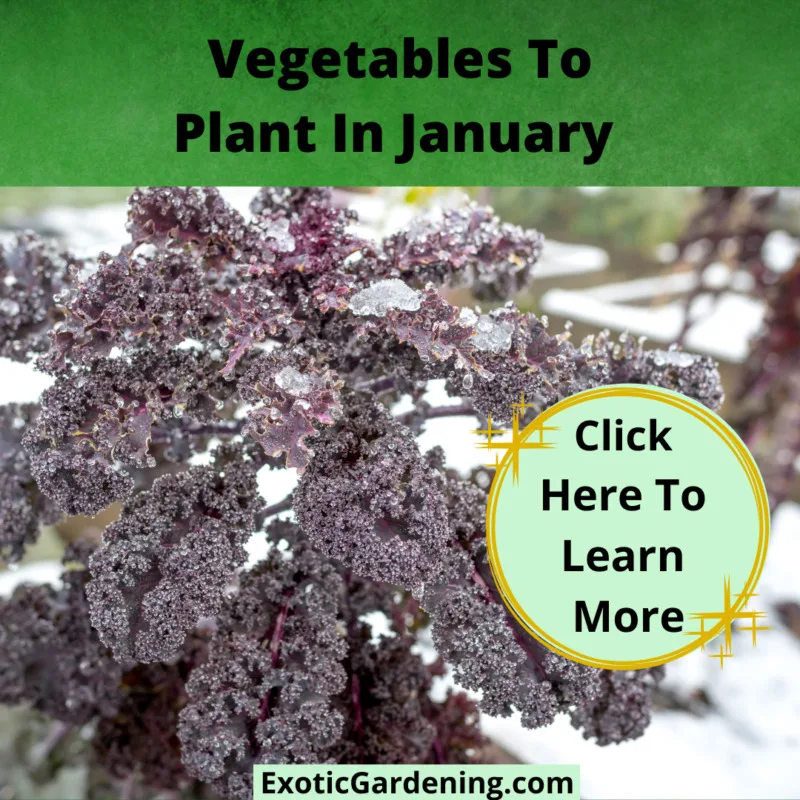
Multiple Dates For Vegetables To Plant In January
The multiple dates for sowing various seeds such as carrots are there for people who succession sow, or who did not get the seed sown on the first date.
Succession sowing is making several sowings of the same crops to stagger the harvest date so you get a longer harvest period for the same crop.
It is a good idea to write these dates down on a calendar and make notes.
What works for one person may not work for his neighbor.
Many factors including gardening soil, the weather and the variety of seeds you choose play a role in how successful your home garden will be.
The Backside Of The Gardening Calendar
Use Frost To Your Advantage
Did you know that there is a way to use frost to your advantage in the garden in both spring and fall? Read on to learn more.
Outsmart Frost in Spring Vegetable Gardens
Understanding how to outsmart frost in spring vegetable gardens leads to earlier harvests, less plant damage and a longer growing season.
When to Plant in Spring: Early Season Garden Tips
Know when to plant in spring by using these early garden season tips. These tips will allow you to get a head start on your vegetable garden.
Jump Start The Spring Garden With Winter Sown Vegetables
Get a jump start on the spring garden with winter sown vegetables. Once you know how to do this, its easy to grow vegetables year round.
Vegetable Garden Frost Protection: Extending Your Winter Gardening Season
Discover essential tips and techniques for vegetable garden frost protection. Extend your winter gardening season with our guide.
Gardening In Cold Climates In Early January
Gardening in cold climates in January without supplemental heat is possible. The seeds, plants and garden structure is what matters.
The Best Vegetables To Plant In February
There are a number of cool season vegetables to plant in February directly in the garden even if you live in a cold climate.
Embracing The Beauty of Winter: A Guide To Winter Flowering Plants
Elevate your garden with winter flowering plants. Explore cold-hardy varieties, garden prep, and nurturing tips.
How To Garden In Winter Indoors And Outdoors
Learn how to garden in winter indoors and outdoors. There are many vegetables and herbs that don't mind the cold or thrive in containers.
From Y2K to Today: How to Garden Through Winter Like It’s the End of the World (Again)
Survive any winter - Y2K or not - with these winter gardening survival tips to grow fresh food all season long.
Save Money! Harvest Free Vegetables Year-Round In Any Climate!
Yes, you can harvest vegetables year-round, even if you live in a cold climate by planting at the right time and gardening under cover.
September Is Here But Don't Quit Gardening Now!
September is here but there is no need to quit gardening. Plant those cool weather crops from seed or transfer plants into the garden.
Monkshood Flowers For The Fall
There are some late blooming flowers for the fall season such as monkshood. Autumn monkshood is known to bloom from September to November!
Vegetable Garden Planting in January: Crops That Self-Seed for an Early Harvest
Vegetable garden planting in January with self-seeding crops gives you early spring harvests straight from the snow.

